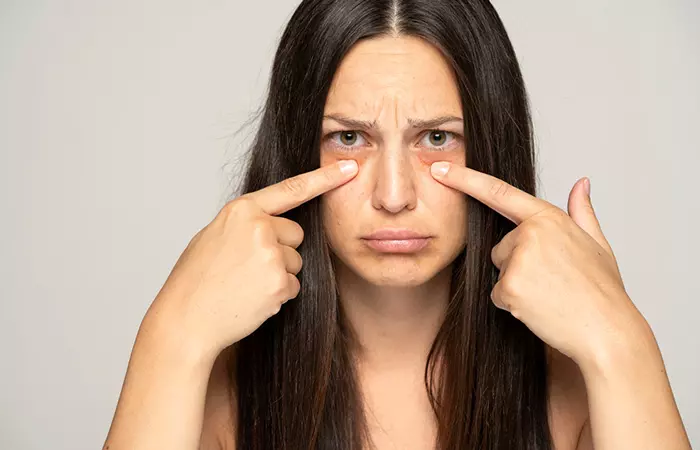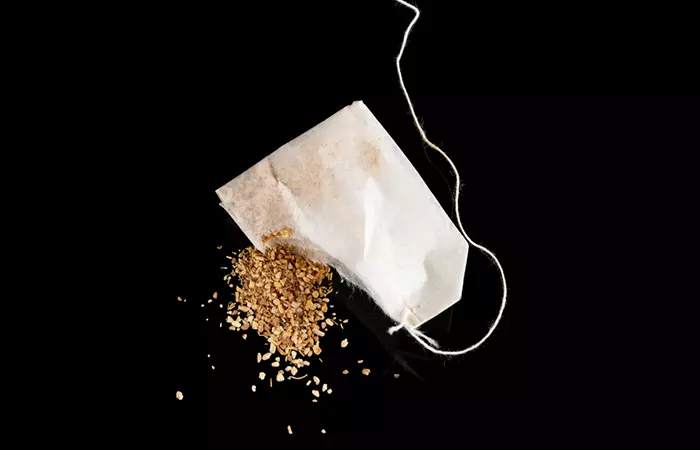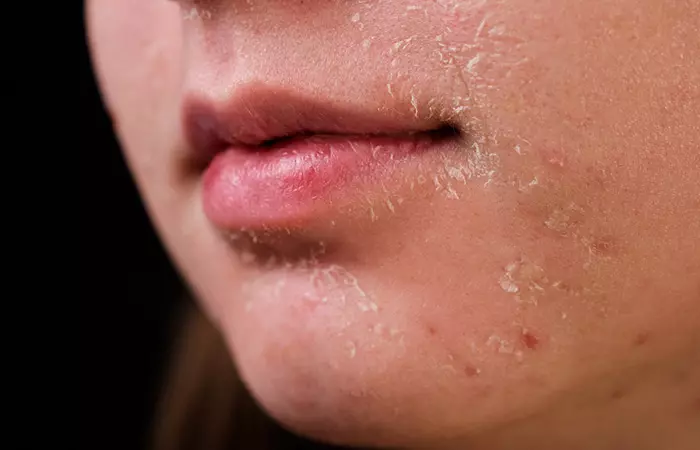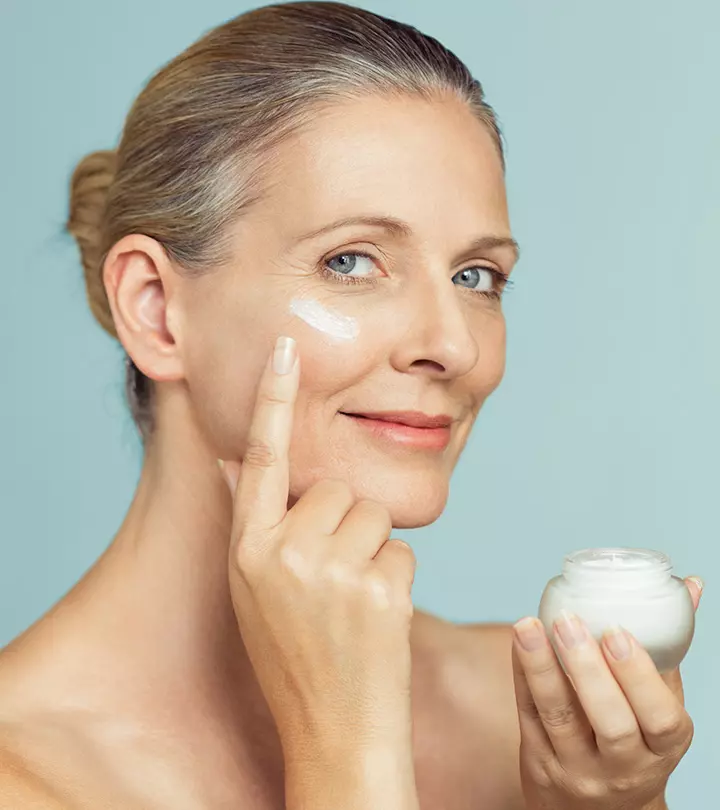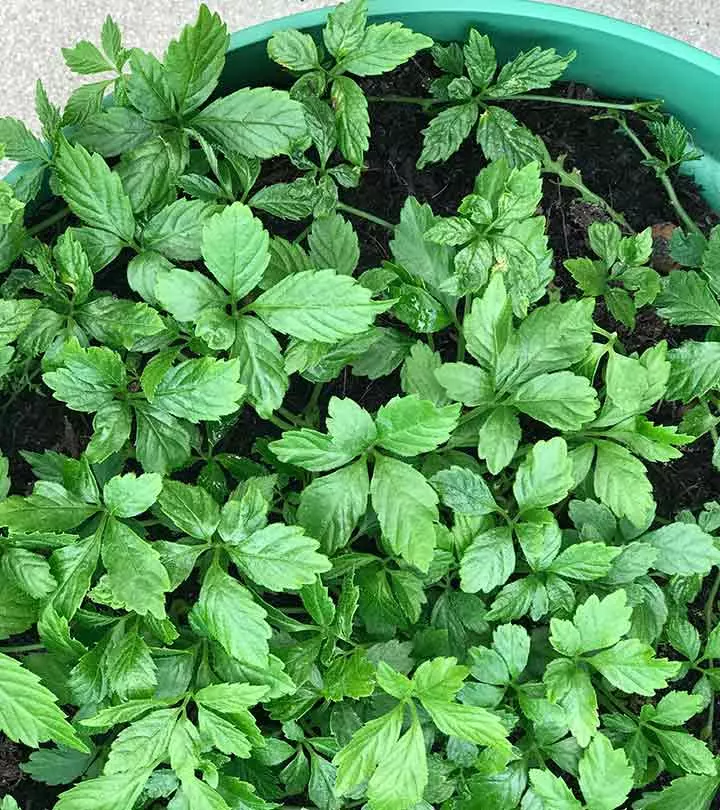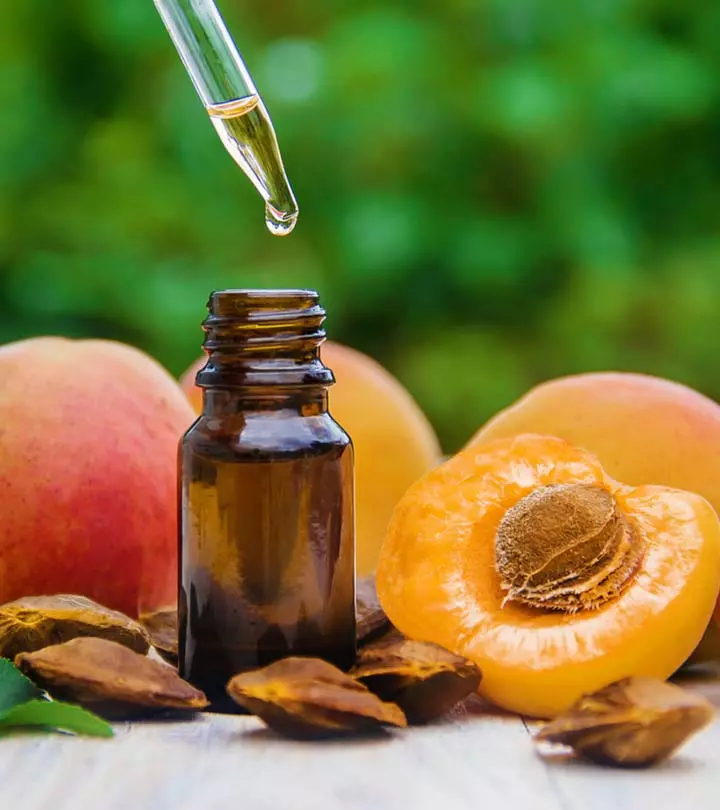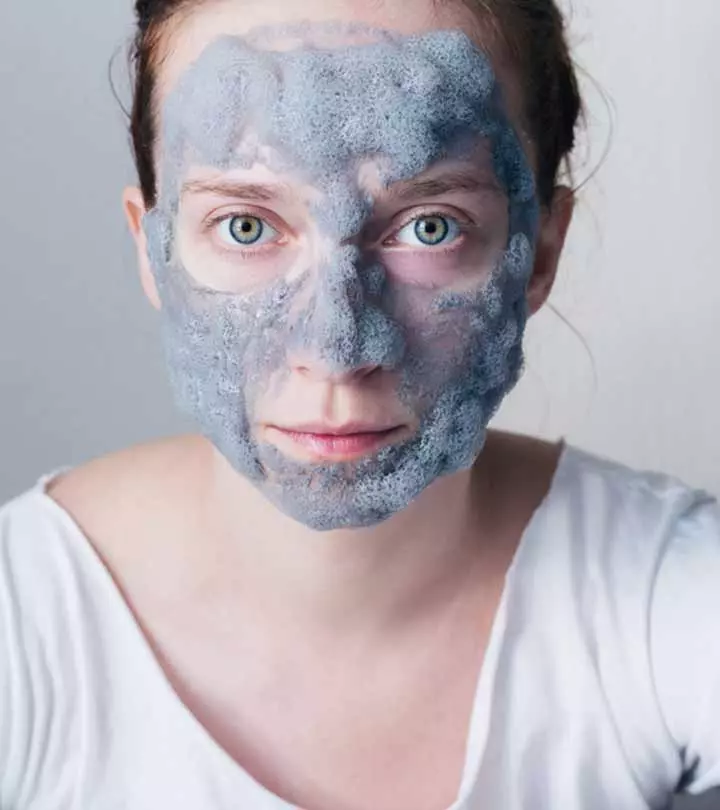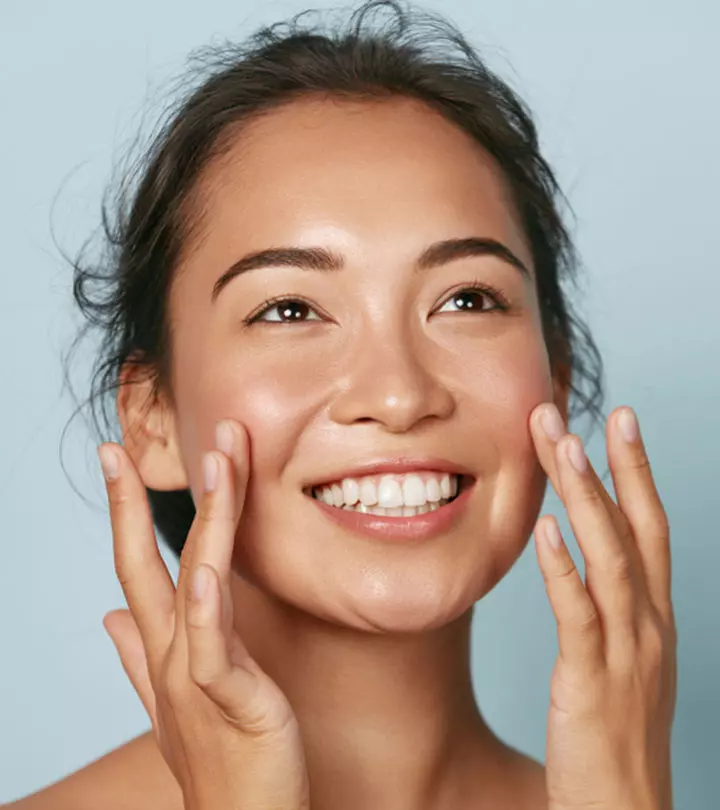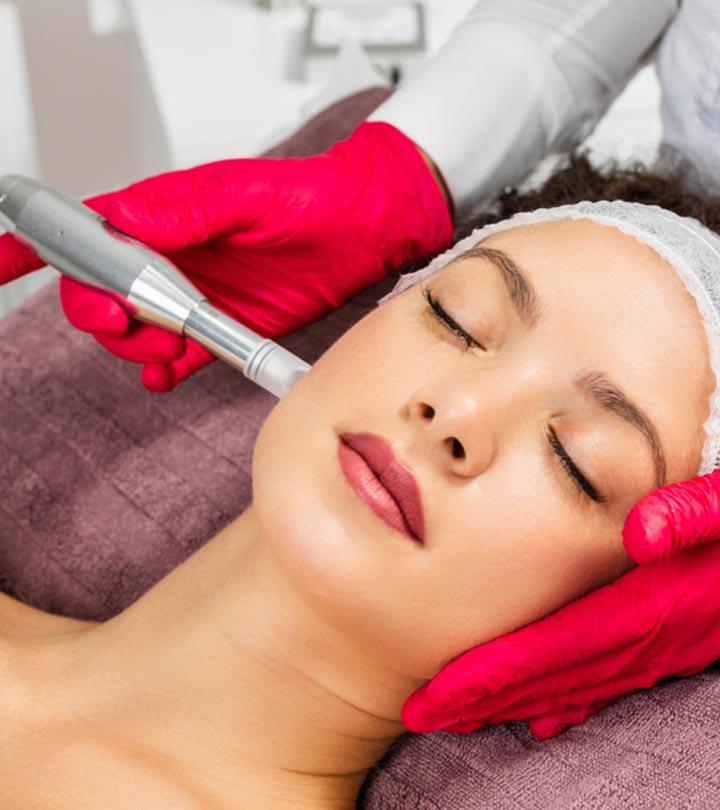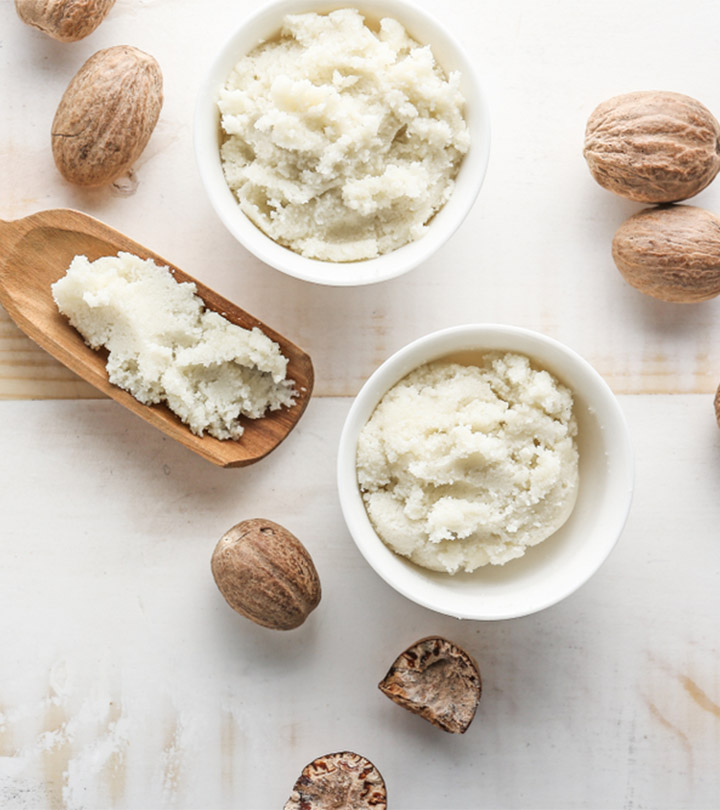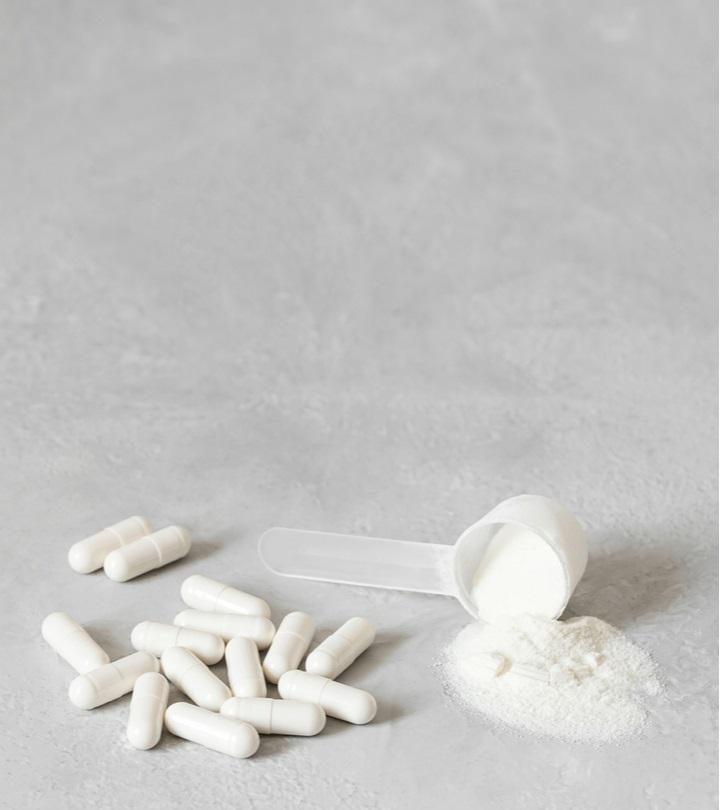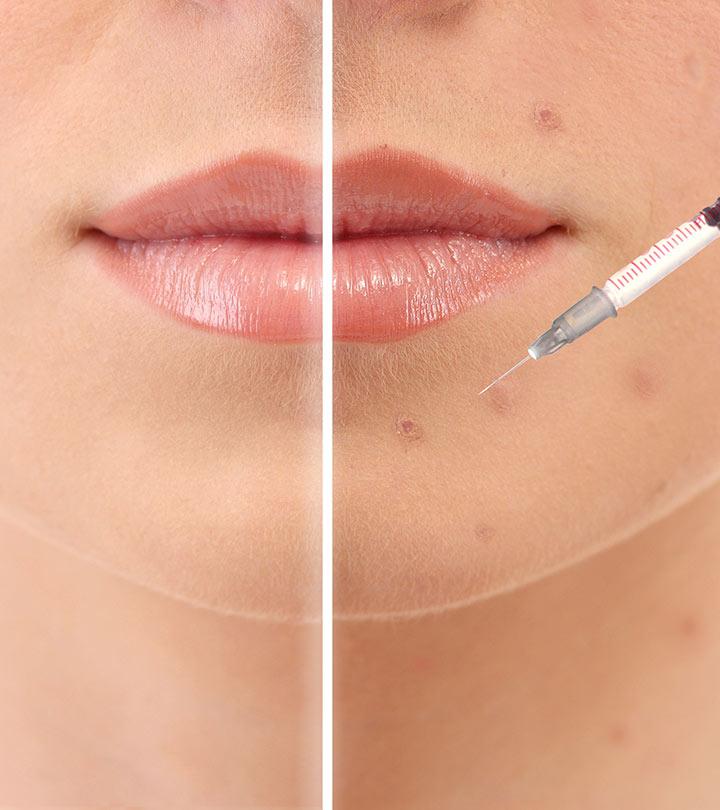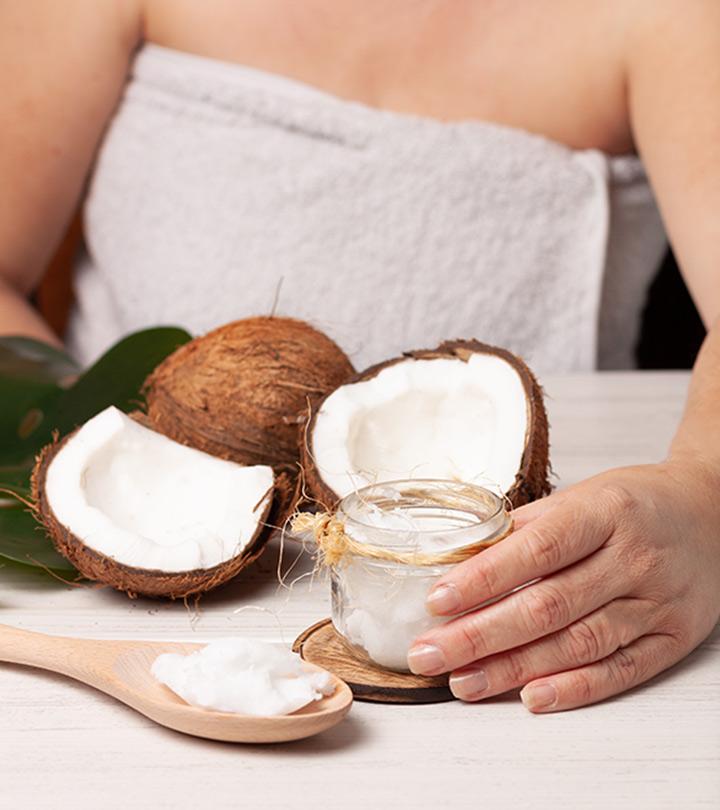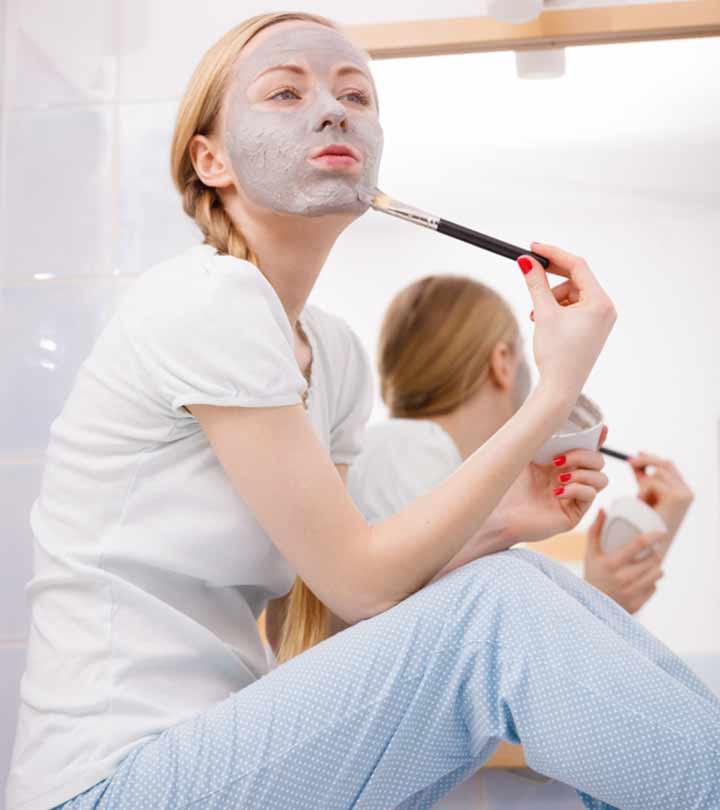Ginseng For Skin: Benefits, Ways To Use, And Side Effects
Use this natural ingredient to minimize skin aging and increase your radiance!

Image: Shutterstock
Ginseng is among the key ingredients of the Korean skin care regime. It is primarily a herbal supplement that is widely consumed in Asian traditional medicine. You may use ginseng for skin care issues as this herb is well known for increasing blood circulation and strengthening the body’s immune system. It is often used in meals, drinks, teas, and other natural remedies. It is also widely consumed as a herbal medicine to improve overall health and wellness.
Many skin care brands today are including ginseng in their beauty products for its purported skin benefits. It is believed to help treat various skin-related conditions. Here, we explore the skin benefits of ginseng, how to use it, and its potential side effects. Read on.
 Know Your Ingredient: Ginseng
Know Your Ingredient: GinsengWhat Is It?
A perennial medicinal herb with fleshy roots.
What Are Its Benefits?
Treat wrinkles and fine lines, helps balance oil production, and reduces hyperpigmentation.
Who Can Use It?
People who have dry and dehydrated skin.
How Often?
Daily, if used in the form of a moisturizer. Every other day if used in a concentrated form.
Caution
People with sensitive skin may experience skin irritation so it is recommended to do a patch test.
Benefits Of Ginseng For The Skin
There are mainly two types of ginseng – Asian and American. Ginseng can be further classified as red ginseng (unpeeled) or white (peeled and dried) ginseng. Red ginseng (also called panax ginseng) is usually used in most skin care formulations for its maximum benefits and potency. Following are the skin benefits of ginseng.
1. May Help Balance Oil Production
Ginseng may act as a shield against various environmental pollutants like dirt, grime, etc. Pollutants may get easily absorbed into the skin, accumulate in pores, and stimulate the production of melanocytesi A type of cell that contains the melanin pigment and is found in the deeper layers of the skin and eyes. . These may eventually lead to brown spots. Skin care products containing ginseng may help balance oil production in the skin. Some research suggests that ginseng may also have anti-acne properties, thanks to its anti-microbial properties (1).
2. May Treat Wrinkles And Fine Lines
Ginseng is effective in boosting the circulation of the skin’s smallest blood vessels. This may ramp up collagen synthesis and potentially treat fine lines and wrinkles. Research shows ginseng may boost the production of type 1 collagen. More specifically, it may help suppress collagen degradation (2). Ginseng may also protect the skin against UV-induced damage, which may otherwise accelerate the appearance of fine lines and wrinkles.
3. May Help Reduce Hyperpigmentation
Ginseng may prevent the detrimental production of melanin (an amino acid that lead to dark spots on the skin) (3).
Ginseng’s anti-inflammatory properties may also help treat severe skin conditions such as psoriasisi A non-contagious autoimmune disorder in which skin cells accumulate and develop into scales and dry, itchy areas. . However, more information is warranted in this regard.
4. May Suit Sensitive Skin
Ginseng’s natural anti-inflammatory properties may help reduce skin redness and puffiness in sensitive skin. Further, it may also help reduce skin inflammation in atopic dermatitisi An inflammatory, itchy skin condition that usually manifests as a rash on the arms and behind the knees in early childhood. (4).
5. May Reduce Dark Circles
Ginseng is thought to reduce dark circles. Its anti-pigmentation properties are believed to play a role here. However, research is unclear in this regard. More information is warranted.
Ginseng may also increase hyaluronic acid generation and keep your skin hydrated and plump (2). This may potentially reduce dark circles.
6. May Boost Skin Glow
The presence of various bioactive compounds in ginseng, such as pectin, saponins, polysaccharides, vitamins B1, B2, and B12, may make ginseng the ideal ingredient for boosting skin glow. However, research is limited in this regard.
Joe Moody, a blogger, shared his experience of consuming ashwagandha in his personal blog. He said, “If I am tired it will give me a robust energy. But if I’m over-stimulated or stressed, it calms me down. It adapts to whatever situation I’m in (i).” He went on to add, “It boosts my immunity (the main reason I use it) giving me an abundance of what I can only describe as a sturdy constitution. It seems to speed healing, from illnesses to skin and mouth wounds and keep my skin shiny.”
 Trivia
TriviaNow that we know the skin benefits of ginseng, let us understand how you can include it in your skincare regimen.
In This Article
Ways To Use Ginseng For The Skin
One of the best ways to treat your skin with the amazing benefits of ginseng is a face pack. A ginseng face mask contains a range of nourishing and energizing ginseng extracts that help revitalize dull and tired skin.
Using these masks regularly can offer important benefits. They have a pleasing, mild scent and give your face a cooling sensation. Using a rejuvenating ginseng facial cream or face mask can help in case your skin feels dry and dull.
Here are some of the most effective ginseng face packs you can use.
1. Turmeric And Lemon Ginseng Face Pack
- Mix 2 teaspoons of ginseng powder along with 1 teaspoon each of magnesium powder, turmeric powder, ashwagandhapowder, and lemon juice in a bowl.
- Apply the mixture gently to the skin.
- Leave it to dry for 5 minutes and rinse off with warm water.
2. Water And Ginseng Pack
- Take 1 ginseng powder teabag and dissolve it in hot water.
- Let the tea cool down to room temperature.
- Gently apply this mixture onto the skin using a cotton ball and wash off with warm water.
3. Milk Powder Ginseng Pack
- Mix 1 teaspoon of milk powder and warm water with 2 teaspoons of ginseng powder to form a thick paste.
- Gently apply the paste to the skin using a cotton ball and leave it on for 5 to 10 minutes.
- Rinse with warm water.
- Apply a good moisturizer of your choice.
Ginseng face masks may offer the following benefits:
- Ginseng face packs may help brighten and revitalize the skin.
- These masks contain natural anti-inflammatory properties that may help reduce skin redness. The masks could also be a calming remedy for various skin issues like acne, dark circles, and psoriasisi A non-contagious autoimmune disorder in which skin cells accumulate and develop into scales and dry, itchy areas. .
- Regular and consistent use of a ginseng face mask may restore lost skin moisture.
 Fun Fact
Fun FactWhile ginseng offers important benefits to skin, it also may cause certain adverse effects. We have discussed them in the next section.
Side Effects Of Ginseng For The Skin
Ginseng, in general, is thought to be safe for most people. However, stop use and consult your healthcare provider if you experience a severe skin reaction. Other causes for concern include swelling of the face or tongue, burning sensation in the eyes, skin pain, skin rashes, blistering, or peeling of the skin. These adverse effects are based on anecdotal evidence.
Is Ginseng Good For Your Face?
Yes. Ginseng is a very powerful herb and is used in skin care products widely. It contains a variety of biologically active ingredients, including polysaccharides, ginsenosides, peptides, polyacetylenes, phytosterols fatty acids, and polyacetylene alcohols. Of these, ginsenosides (steroid-like saponins) are considered the most potent (5).
Infographic: Top Skin Benefits Of Ginseng
Ginseng possesses several bioactive compounds that may contribute to its therapeutic properties. While there are many skin benefits of this medicinal herb, we have listed the most effective ones in the infographic given below in detail. Check it out to know more.

Illustration: StyleCraze Design Team
Ginseng is a plant-based ingredient commonly found in Korean skin care products. You can use ginseng for skin-related issues as it helps increase blood circulation and improve the immune system. It also manages hyperpigmentation and has anti-aging benefits for the skin. The best way to incorporate ginseng into your skin care routine is through face packs. Ginseng face packs help nourish your skin and provide glow and radiance. You can prepare a DIY ginseng face pack by combining it with other ingredients like turmeric, lemon, or milk powder. Though safe to use on skin, be wary of its side effects.
Frequently Asked Questions
What does ginseng serum do?
According to anecdotal evidence, ginseng serum improves blood circulation and rejuvenates dry, tired skin. In addition, its antioxidant capabilities may help cleanse the skin and protect it from further harm.
How do you make ginseng serum at home?
What you need
• 1.2 oz argan oil
• 0.7 oz jojoba oil
• 0.2 oz ginseng extract
• 0.2 oz cera bellina wax
• 0.2 oz vitamin E oil
• Slide tins
Method
• Pour argan oil and jojoba oil in a bowl.
• Add cera bellina wax.
• Melt this mixture in the microwave for 30 seconds.
• Take it out carefully and add vitamin E oil and ginseng extract.
• Stir to mix them well.
• Pour the mixture into the slide tins.
• Let it cool.
Are ginseng and ashwagandha the same?
Ashwagandha is known as the Indian Ginseng, as they both have similar benefits.
Is ginseng good at night?
It is good to take ginseng at night, however you should consult a doctor before consuming it as it may cause sleep disturbances in some.
How long can I take ginseng?
You can consume ginseng for 3-4 months and can have 1 to 2 grams of the root 3 or 4 times per day.
Is ginseng tea healthy?
Ginseng is one of the adaptogens, a group of natural ingredients that help the body cope with physical and emotional stress. Therefore, ginseng can have a balancing effect on the body and promote overall wellness. It can be consumed as a tea to get the maximum health benefits. (7)
Key Takeaways
- Ginseng has oil balancing and anti-acne properties.
- It also manages wrinkles and fine lines by boosting blood circulation and collagen production.
- Ginseng also reduces dark circles and hyperpigmentation to make your skin glow.
- Facial masks or creams containing ginseng are the best ways to add this herb to your skin care regimen.
Check out the below video to discover helpful tips for maintaining healthy skin, including a refreshing ginseng face mask. Embrace a natural glow and enhance your skin care routine.
Personal Experience: Source
StyleCraze's articles are interwoven with authentic personal narratives that provide depth and resonance to our content. Below are the sources of the personal accounts referenced in this article.
i. The Most Powerful Herb You Never Heard Ofhttps://medium.com/the-mood/the-most-powerful-herb-you-never-heard-of-1ffe0ff3c2fe
References
Articles on StyleCraze are backed by verified information from peer-reviewed and academic research papers, reputed organizations, research institutions, and medical associations to ensure accuracy and relevance. Read our editorial policy to learn more.
- Anti-acne properties of hydrophobic fraction of red ginseng (Panax ginseng C.A. Meyer) and its active components
https://pubmed.ncbi.nlm.nih.gov/30506753/ - Ginseng: An Nonnegligible Natural Remedy for Healthy Aging
https://www.ncbi.nlm.nih.gov/labs/pmc/articles/PMC5758347/ - Effect of ginseng and ginsenosides on melanogenesis and their mechanism of action
https://www.ncbi.nlm.nih.gov/labs/pmc/articles/PMC4268563/ - Red ginseng extracts attenuate skin inflammation in atopic dermatitis through p70 ribosomal protein S6 kinase activation
https://pubmed.ncbi.nlm.nih.gov/29274665/ - Biological Activities of Ginseng and Its Application to Human Health
https://www.ncbi.nlm.nih.gov/books/NBK92776/ - The world ginseng market and the ginseng (Korea)
https://www.ncbi.nlm.nih.gov/pmc/articles/PMC3659626/
Read full bio of Reda Elmardi
Read full bio of Ramona Sinha
Read full bio of Swathi E






